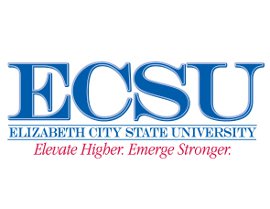Increasing the representation of African American male medical doctors: A call to action

A column by Ramon B. Goings
Recently, like many Americans, I had the task of choosing a new medical provider as my previous medical plan was no longer offered. While making a decision on the medical provider was relatively simple, once I enrolled in the medical plan I was faced with the daunting task of choosing a primary care physician (PCP). After going through the PCP candidate biographies and photos, I began to ask myself, “Where are the African American male doctors?” As an African American male educator, I understand being underrepresented in a profession as we comprise approximately 2% of the teacher workforce. However, I was disappointed because I did not have the opportunity select an African American male doctor. From that experience, I began to contemplate how not having a diverse workforce could impact the lives of African Americans.
Although diversifying the medical profession has been discussed in detail, the results are still staggering. According to the Association of American Medical Colleges (AAMC) approximately 3.3% of US physicians are African American. Moreover, in 2014 African Americans account for approximately 2.5% of medical school faculty. When looking at African American males specifically, the AAMC found in their 2015 report titled, Altering the Course: Black Males in Medicine, that in 2014, African American males comprised 37.5% of African American medical school applicants, the lowest of any gender and/or racial group. Given the barriers for African Americans generally and males specifically such as dealing with racism, stereotype threat, and racial discrimination in medical school, residencies, and in the workforce, these numbers are no surprise. However, we must do more to support the matriculation, graduation, and professional development of African American males considering and/or currently in the medical profession.
When seeking to understand the nature of the underrepresentation of African American men in the medical profession it is imperative that researchers and policy makers examine the entire education pipeline (PK-20) as barriers exist at each level that limit the number of African American males in medicine. For instance, the AAMC reports that interests in science, technology engineering, and mathematics (STEM) disciplines is a strong indicator medical colleges use to determine possible medical school applicants. However, K-12 institutions have often created school climates where African American males are led to believe that they are either a “math or science student” or a “humanities student.” The results of this approach are devastating as these negative experiences may lead African American males to not even consider a STEM undergraduate major altogether. While having a STEM degree is not a requirement for admission into medical school, it is paramount that African American men have a strong STEM background to prepare for the Medical College Admission Test.
Although there are numerous barriers that exist for African American men in the medical profession, it is also essential to explore how African American males succeed in medical school and in the profession. In particular, historically Black colleges and universities (HBCUs) are in position to prepare and train African-American medical doctors. In 2013, Howard University and Xavier University led the country in African American undergraduates who went on to U.S. medical schools. HBCUs have historically served students from underserved communities; thus, these institutions should be an integral part of the conversation on increasing the representation of African American males in medical school.
Unfortunately, the lack of African American physicians negatively impacts African American men. They do not have access to doctors who look like them, share lived experiences, or recognize their struggles. Changing this current trend is important as several studies suggest that patients are more likely to seek support from a doctor of the same race. In addition, African American doctors are more likely to work in communities with higher concentrations of minority patients. Limited access to African American male doctors can also have an impact on African American males’ decision to seek treatment. Given that eight of the top 10 leading causes of death for African Americans according to the Center for Disease Control (CDC) are preventative, African American male doctors are in place to help address healthcare inequities that adversely impact the African American community. Furthermore, as our nation’s population continues to become more racially and ethnically diverse, it is critical to have doctors who reflect this demographic shift.
The 2015 AAMC report on increasing the representation of African American male doctors has opened a conversation that I hope continues and is addressed. We must work collaboratively to increase the amount of African American males not only attending medical school, but graduating from these institutions. Solving this issue will require educational institutions (K-12 and higher education) generally, and medical schools specifically to examine how the school climate and culture negatively impact the socialization of African American males. To support the increase in African American males doctors it is critical to form an African American male medical pipeline that fosters partnerships between practicing African American male physicians, current medical students, African undergraduates considering applying to medical school, and high school and middle school males considering the medical profession. For instance, a collaboration between Howard University’s Department of Psychology and School of Medicine, the Young Doctors DC program provides opportunities for middle and high school African American young men to be mentored and trained by African American physicians and medical students in order to prepare them for a career in healthcare and to make an impact on underserved communities. These types of support structures are critical to ensuring that African American males have a support system throughout their academic and professional careers.
Read all of our posts about HBCUs by clicking here.
____________________
Ramon B. Goings is the Program Coordinator of the Sherman STEM Teacher Scholars Program at the University of Maryland, Baltimore County and a doctoral candidate in Urban Educational Leadership at Morgan State University. He conducts research on Black male student success PK-PhD, nontraditional student success in higher education, and STEM teacher preparation.




